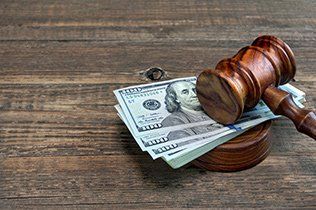Tired of bill collectors calling you constantly? Exhausted by juggling bills? Worried that you might lose your home? If you've answered yes to all of those questions, it may be time to consider bankruptcy.
For individuals, one of the most common types of bankruptcy is Chapter 13. Wondering if that's the right option for you? Here's a look at the key benefits of filing this particular type of bankruptcy.
1. Stops Creditors from Seizing Your Assets
As soon as you file for Chapter 13 or any other type of bankruptcy, the courts issue an immediate stay. That prevents all creditors including the IRS from seizing your assets. In some cases, it's even possible to stop foreclosure on your home even if the bank has already started the process.
Note that this isn't possible in every case so it's important to contact an attorney as soon as possible to protect your assets.
2. Doesn't Require Liquidation
Under a Chapter 13 bankruptcy, you don't have to liquidate your assets. In contrast, if you decide to file Chapter 7 (the other most common type of bankruptcy for individuals), you are required to liquidate everything but your essential assets. Usually, essential assets are defined as your home, a moderate-value vehicle and your personal effects.
However, in exchange for not liquidating, you have to make payments to your creditors. That's why this type of bankruptcy is often referred to as the wage earner's bankruptcy.
3. Can Help You Catch up On Your Mortgage
Some of the payments that you make on a Chapter 13 bankruptcy can be used to help you catch up on your mortgage. That can be extremely beneficial for people who don't want to lose their homes but are already behind. You don't get that same opportunity with a Chapter 7 bankruptcy.
4. May Reduce the Amount You Owe on Your Vehicle
The payments you make with this type of bankruptcy can also help you catch up on delinquent car payments, but it gets better than that — with a Chapter 13 bankruptcy, you may even qualify for a cramdown.
A cramdown is when your creditor agrees to reduce the amount you owe on your car loan. The reduction happens when you owe more than your car's fair market value. That can lower your monthly payments, save you a lot in interest and help you save your car from repossession.
5. only Stays on Your Credit Report for Seven Years
Unfortunately, bankruptcy has a negative impact on your credit report, but in many cases, it's better than the alternative of ruining your credit while also losing your car and your home. However, as a positive point, Chapter 13 only stays on your credit report for seven years, while Chapter 11 and Chapter 7 stay on your credit report for 10 years.
6. Doesn't Affect Your Tax Liability, Unlike Debt Settlement
Settling your debts for less than you owe can be an alternative to bankruptcy, and this approach has benefits in many situations. However, if you save more than $599 in any one settlement, you have to report the savings as income on your tax return. That can increase your tax liability and put you into debt with the IRS. When debts are discharged through bankruptcy, you don't have to worry about that.
7. May Include Tax Debts
Speaking of the IRS, you may even be able to include certain tax debts in your bankruptcy. This varies based on the age of the tax debt, the amount of other debts you have, your income and several other factors. However, in many cases, it is possible to eliminate some of those old tax debts.
At Armstrong, Betker and Schaeffer, PLC, we file more bankruptcy papers than any other attorney in Berrien, Cass or Van Buren counties, and we're committed to helping you protect your assets.
Contact us to learn more today.





